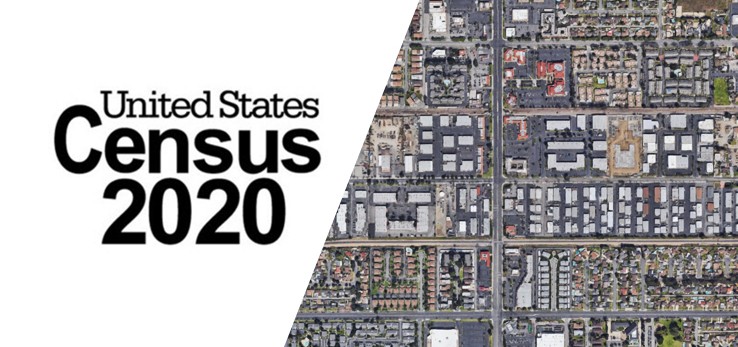
The U.S. Constitution (Article I, Section 2) mandates a census every ten years to count every person living in the United States. The first census took place in 1790. Since 1930, Census Day has occurred on April 1 every decade; the next Census Day is April 1, 2020.
The census plays a key role in determining political representation and allocating federal resources. Census data is used to determine how many congressional seats each state receives during the once-a-decade reapportionment process. State legislators and local governments also rely on census data for redistricting, where the data ensures that districts are equally populated and helps guide decisions on whether to draw majority-minority districts. The federal government, likewise, uses population totals to determine how much funding cities and states receive for things like education, health care, and the arts. Businesses also use census data to guide their decisions on investment, marketing, and advertising.
The census form asks one person from each residence to answer a uniform set of questions about the people who live or stay in the residence. For example, the 2010 census included questions about the number of people who lived in a household, their age, sex, and race, and how they were related to the person completing the form. The form also requested information on the ownership of the housing unit and asks whether people living in the households were of Hispanic, Latino, or Spanish origin. Previous censuses have asked about educational attainment levels, home financing, and marital status. But those questions have been replaced in recent years with a longer, separate survey known as the American Community Survey (ACS). The ACS is conducted every year to provide up-to-date information on demographic, social, and economic characteristics of our nation’s communities. The ACS is sent to a small percentage of households on a rotating basis throughout the decade.
Traditionally, the census form has been a paper questionnaire sent to every household in the country. However, the 2020 Census will, for the first time, give people the option to complete their questionnaire online. Respondents will still be able to fill out a paper questionnaire if they choose. They will also be able to give their responses over the phone.
Every household is required to complete the census. Title 13 of the U.S. Code provides that anyone over the age of eighteen who refuses to answer census questions could be fined up to $5,000. The Census Bureau is required by law to keep confidential all information that it collects from individuals. No one except census workers may see a completed census form. A census employee could be fined or imprisoned for disclosing any answers from these forms.
The Constitution charges Congress with the responsibility of conducting the census. Congress has since delegated that authority to the Census Bureau, which operates under the Department of Commerce. The U.S. Senate Committee on Homeland Security and Governmental Affairs and the Government Operations subcommittee of the U.S. House Committee on Oversight and Government Reform oversee the Census Bureau. The Census Bureau is led by a director and deputy director, who are typically career civil servants with experience with statistical data collection and analysis. The President appoints the director, as required by federal law, subject to Senate confirmation. The deputy director does not require Senate confirmation.
The Census is an expensive undertaking. Since 1960, the cost of census activities has escalated. The 2010 census was the costliest in U.S. history at about $12.3 billion, and the 2020 Census—if fully funded—is expected to exceed that amount.
As all this suggests, the census is a critical underpinning of our democratic systems. As technology develops and our nation’s population continues to grow and diversify, the Census Bureau will continually face challenges to evolve and innovate. Now, and into the future, it must meet these challenges while ensuring that everyone is fairly and accurately counted.


